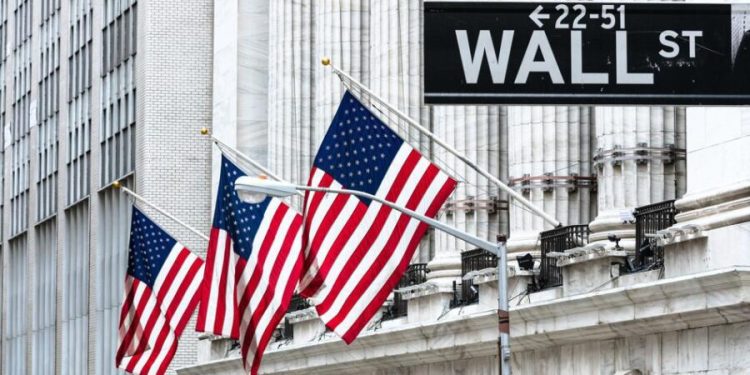Interest rate cuts could rally stocks but the measures also pose risks.
Shaking off a woeful performance last year, the stock market soared to record highs in 2023.
The S&P 500 — the index that most people’s 401(k)’s track — climbed nearly 25% this year, as of Wednesday.
The Dow Jones Industrial Average leapt 13%; while the tech-heavy Nasdaq rose a staggering 44%.
Looking ahead, a central question looms over Wall Street: Will the good times keep rolling?
The stellar performance owed in large part to optimism about the prospects for a “soft landing,” in which inflation comes down to normal levels while the economy avoids a recession, prominent experts said in end-of-year reports. Investor enthusiasm about AI also helped drive returns, they added.
Analysts differ significantly in their outlooks for 2024, however, while some fear a potential downturn could bludgeon markets and others expect slow but steady growth that will lift stock prices.
The U.S. economy achieved some major successes this year, emboldening investors and rallying markets.
Inflation continued to fall from a peak of about 9% last summer, reaching within a percentage point of the Fed’s target rate. While hiring slowed lately, it remained robust.
All the while, economic growth surged. The U.S. economy grew at an annualized pace of 4.9% over three months ending in September, more than doubling growth in the previous quarter, a government report in October showed.
The progress on inflation prompted a landmark announcement from the Fed earlier this month: Plans to reverse its near-historic rate hikes with a series of cuts next year.
Savita Subramanian, head of U.S. equity and quantitative strategy at Bank of America Securities, told investors last month that the slowdown of price increases bodes well for markets, regardless of the Fed’s actions next year.
“We’re bullish not because we expect the Fed to cut, but because of what the Fed has accomplished,” Subramanian said.
Still, other analysts have cautioned that interest rates continue to pose a major risk for stocks, since a misstep could either plunge the economy into a downturn or rekindle rapid price increases.

“We deferred a recession this year,” Barry Bannister, a market strategist at wealth management firm Stifel who holds a cautious view of stock performance in 2024, told ABC News.
Policymakers face a difficult task of continuing to slow the economy and cool inflation while averting a downturn. At the same time, if officials boost economic and business growth, they risk a rebound of inflation as consumer demand swells, Bannister added.
There are two extremes,” he said. “It’s either too hot or too cold, but not just right.”
Another key driver of market gains this year was the rise of artificial intelligence. Major stock indexes drew a bump from investors optimistic about benefits of the newly prominent technology, especially over the early months of the year.
However, those gains were concentrated primarily in a handful of tech giants, known as the magnificent seven: Alphabet, Amazon, Apple, Meta, Microsoft, Tesla and Nvidia.
Nvidia, a California-based chip maker whose products help power artificial intelligence platforms like ChatGPT, may best encapsulate this phenomenon. The stock skyrocketed nearly 240% this year, as of Wednesday.
Earnings delivered by the S&P 500 trace to a level of concentration last seen in the 1970s, Morgan Stanley said in a report earlier this month. The absence of broad growth suggests major companies will face “major headwinds” next year, Morgan Stanley added.
Subramanian, of Bank of America, rebuked the notion that lofty investor sentiment has outpaced overall business performance. “Bull markets typically end with high conviction and euphoria — we are far from that,” she said in her memo to investors.
At this time last year, the market approached the end of a dismal 2022. Fearing a recession, many forecasters warned of further decline. Instead, a downturn never came to pass and stocks surged.
Above all, the takeaway from recent performance may be one of humility.
Marko Kolanovic, chief global markets strategist at J.P. Morgan, summed up the attitude this month in the bank’s 2024 investing outlook: “Overall, we are cautious.”
Source: abcNEWS



Recent Comments